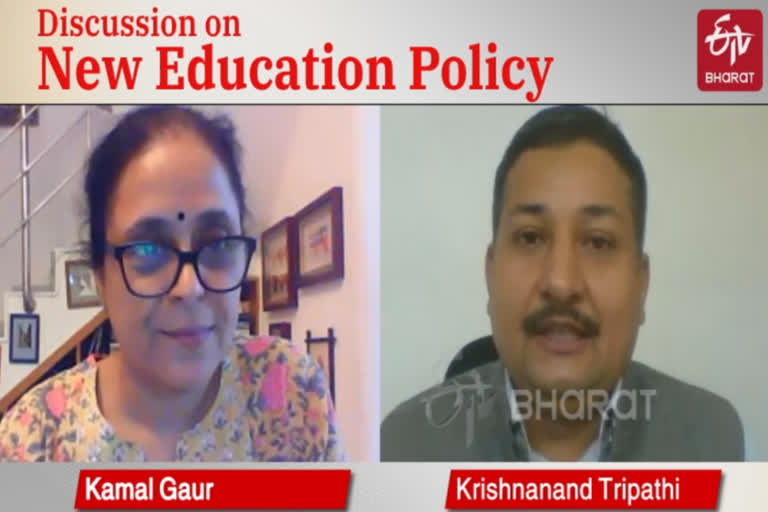New Delhi: The New Education Policy 2020 is transformational in nature, for both primary and higher education but it has completely missed out on COVID context, says Kamal Gaur, Head of Education of Save the Children, India.
In an exclusive interaction with ETV Bharat Deputy News Editor Krishnanand Tripathi, she said the policy does not mention how to prepare our schools for COVID like situation in future so there is no loss of education during such pandemics.
Q: Just change in the format from 10+2 to a new 15-year system will change the way we impart education in the country?
A: If you go by the intent then it is very transformational, both at school level and higher education, it has covered a wide range of areas, new areas, early learning has become part the new education policy which is great for us as the focus will be on foundational learning, for which we were fighting. But there are some missing links as well, for example, it is not clear how we are going to get there. We talk about 100% access, but the roadmap, the pathways are missing.
Q: Some critics argue that natural numbers begin from 1...so schooling system should begin from class 1 but private schools started prep and kindergarten to commercialize the preparatory education...so there is some criticism of including prep-education in the policy.
A: We at Save the Children and several other academicians, collaborators and partners think it's a good move where early learning has been integrated in the school education system because it talks about the greater readiness of children to go to school. One of the key areas of our work is school readiness. The whole idea of Angandwadi and pre-schools is aimed at making children school-ready.
The other area is whether school and the system is ready to receive those children because what happens in pre-school, it is free, natural organic kind of system and a lot of caregiving takes place.
When a child, who was there in 10x10 square feet room, reaches to a school with a huge building, huge gate, where you have teachers who maintain distance, then it is an issue.
Q: The policy talks about foundational literacy and numeracy. Some experts say reading, writing and basic arithmetic are very important skills and if a child acquires them then he can succeed in life. Could you please elaborate on the foundational learning?
A: Foundation learning is an extension of pre-school. You are teaching-learning methodologies, learning practices. We don't talk about reading and writing in pre-school. Inclusion of foundational learning should be an extension of emergent literacy in maths. Save the Children also talks about that. We have something called ready to learn common approaches which is based on emergent literacy in maths.
We have been advocating for it, we have been fighting for it. For us, it's a welcome change.
Q: Indian education system was criticized for its focus on memorizing things and rote learning whereas in other developed countries focus is on critical thinking, ability to question things taught to children. Has it been included in the new policy?
A: That's called emergent literacy in maths, you focus on developing skills. The intention is right but again I will ask where is the investment, where is the money for it? We are talking about ed-tech, monitoring and regulation of private schools. Theoretically, it looks good, but we will wait and watch how it is taken forward in a practical way.
